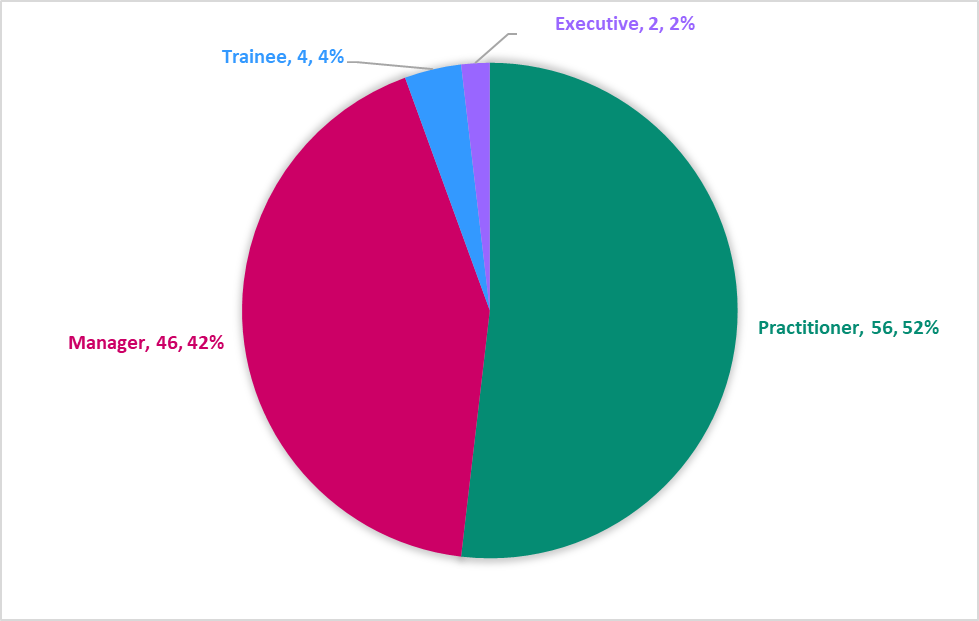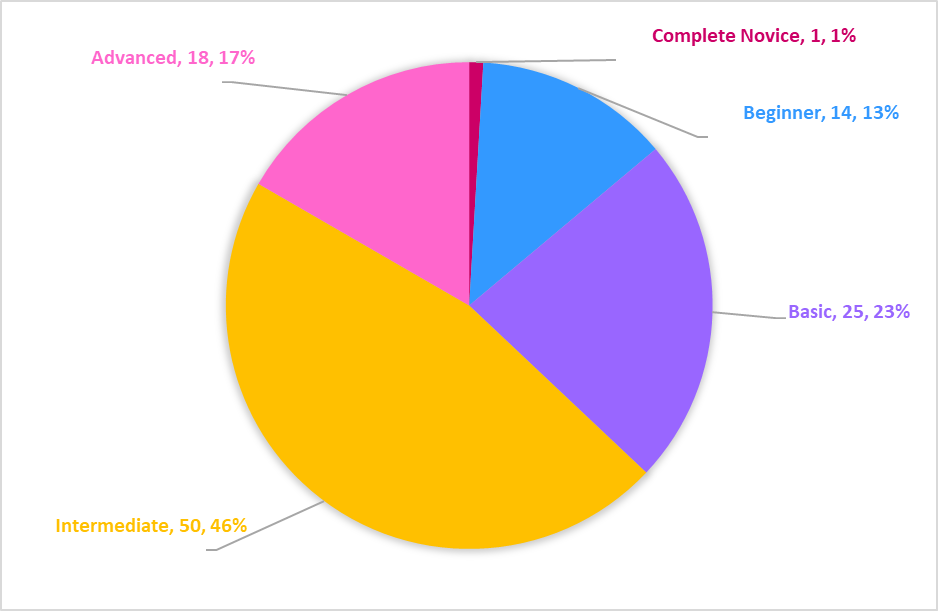It’s been a busy time lately for me and Amy Currie, the DPC’s Training Officer! Over a short series of blog posts we’re going to fill you in on some of the recent highlights of the DPC’s Workforce Development activities. First up, I’m going to give a brief run down on the results of our recent training needs survey.
In late Spring 2020 I circulated a survey to DPC members to assess current training needs. The purpose of the training survey was twofold:
- To gather comprehensive information on member training needs in response to the growing membership, and its increased diversity of organisation types and locations.
- To better understand priorities for training topics as the DPC looks to expand online training provision in response to the successes of the “Novice to Know-How” project.
In this blog post I’ll share some of the key findings and talk a little about next steps. DPC Members can download a copy of the full report at the bottom of the page.
This survey was the 2nd in what will now be a biannual assessment of the training needs of the DPC membership. The 108 responses received exactly doubled the number from the 2018 survey. The previous survey also only gained a limited number of responses from the DPC’s international membership (20%), but this was much increased in 2020 with 46% of respondents hailing from outwith the UK (representing 10 different countries).
When describing their own roles, respondents overwhelmingly identified as either a Practitioner (56, 52%) or a Manager (46, 42%) (Figure 1). This was a trend further borne out by the job titles listed, with Archivist (38) and Manager (18) being by far the most common keywords included. There was also evidence that there is still a lack of consistency in relation to titles for digital preservation-related roles with approximately 80 different job titles listed amongst the 108 responses.

Figure 1: Respondents’ Role Level
Respondents were also asked to identify their current level of knowledge in relation to digital preservation (Figure 2). 63% of respondents listed their level of knowledge as either Intermediate or Advanced, showing the increasing level of skills within the digital preservation community.

Figure 2: Current Level of Knowledge
One of the things we wanted to learn from the survey were the key benefits our members hoped to accrue from training. Unsurprisingly, gaining practical skills to help them implement digital preservation processes was the top answer, with 53% of respondents listing this desired key benefit. Other benefits listed included:
- Knowledge of key topics to help understand colleagues’ work (29, 27%)
- Providing a networking opportunity to make connections with those doing similar work (20, 19%)
- Helping with planning for digital preservation activities (12, 11%)
- Being able to explain DP concepts to others, particularly during advocacy activities (12, 11%)
- To enable them to provide training for colleagues at their organization (9, 8%)
We also asked respondents about the topics they were most interested in receiving training on, and whether they wanted training at an introductory, intermediate, or advanced level. The top 5 topics across the categories were:
- Digital preservation tools
- Managing Metadata
- Risk Management
- Maturity Modelling
- Providing Access to Digital Content
In relation to the level of training desired, the requests matched inversely with the potential complexity of the topic. Introductory level training was most requested for more advanced topics such as Forensics, Emulation, and Social Media Preservation. While advanced level training was most requested for more established topics such as policy writing, risk management, and managing metadata.
Now that we have the data analysed from the DPC member training needs survey, we are starting to make plans for our next steps in training development. The first one will be a further survey of the broader digital preservation community. The main aim of the 2nd survey will be to gain further feedback on potential training topics, but we will also be using it as an opportunity to gather information on training that already exists. This information will then be gathered in a community Wiki hosted by the DPC, which will hopefully make finding training opportunities easier for all. The survey can now be completed here: http://bit.ly/DPTraining2020
I’ll also be drawing up a schedule for developing new training content from the DPC. We’ll largely be focussing on the development of online training, but will also be aiming to develop some new “synchronous” training courses too (a change in terminology from “face to face” given the current situation!) Topics covered will be a mix of the priorities from DPC members and the wider community, and the translation of existing resources, such as the Policy Toolkit, into a training format.
So, that’s my quick update on our DPC Member Training Needs Survey. Please do complete the wider survey if you have a minute, and encourage others to do the same. And check back soon for the next installment in our Workforce Development blog series, where Amy will be sharing all the stats you could want from her recent DP Labour Market Analysis work!
DP Community Training Survey: http://bit.ly/DPTraining2020
Members, please login to download the full DPC Member Training Needs Survey Report















































































































































